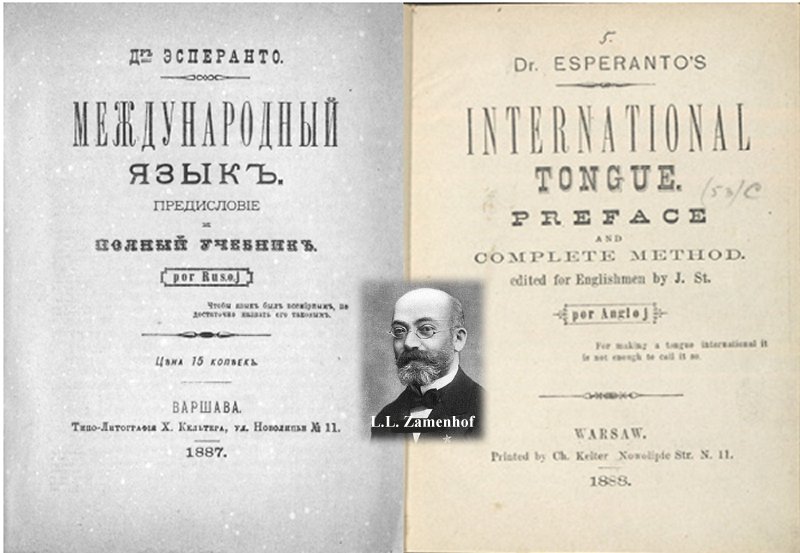MessageToEagle.com – On July 26, 1887, the Unua Libro (English: First Book) was published founding the Esperanto movement.
It was the first publication to describe Esperanto, which later became called the International Language (Esperanto: Lingvo Internacia).
This first publication was in Russian and was printed in Warsaw, Poland by Polish oculist L. L. Zamenhof.
Over the next few years editions were published in Polish, Russian, Hebrew, French, German, and English.
This booklet included the Lord’s Prayer, some Bible verses, a letter, poetry, the sixteen rules of grammar and 900 roots of vocabulary. In the book Zamenhof declared, “an international language, like a national one, is common property” and renounced all rights to the language, effectively putting it into the public domain.
Zamenhof signed the work as “Doktoro Esperanto” (Doctor One-Who-Hopes). Those who learned the new language began to call it “Esperanto” after Zamenhof’s pen name, and Esperanto soon became the official name of the language.
The first English edition, entitled Dr Esperanto’s International Tongue, was translated by Julian Steinhaus but was criticized byRichard H. Geoghegan, a remarkable philologist and apparently the first English-speaking Esperantist.
Zamenhof decided to destroy his remaining copies and engaged Geoghegan to produce a fresh translation.
In 1905, Zamenhof re-published the sixteen rules of grammar, in combination with a dictionary and a collection of exercises, in a work entitled Fundamento de Esperanto (Foundation of Esperanto).
MessageToEagle.com







